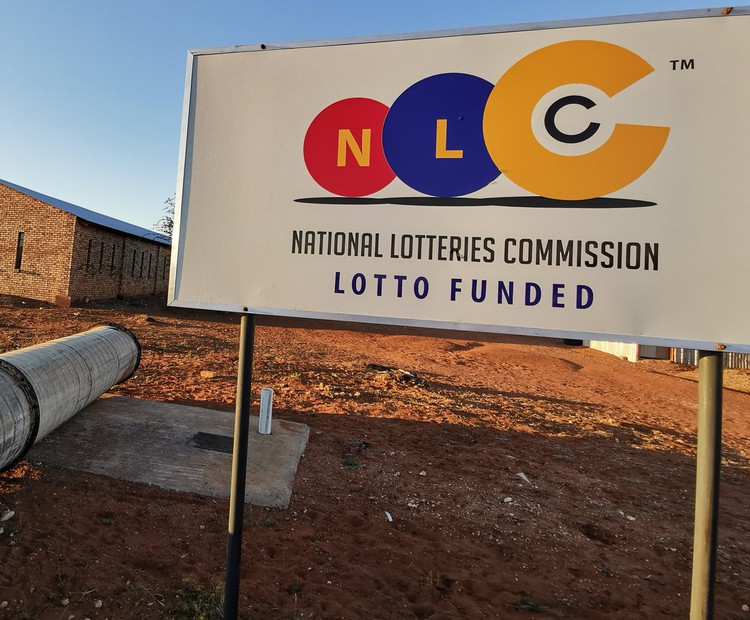
25 June 2020
The National Lotteries Commission is desperate to stop GroundUp and other publications from exposing corruption. Photo: Raymond Joseph
About a third of every lottery ticket sold is supposed to go to good causes to help develop the country. That was the justification for the Lotto when it started two decades ago.
That money for good causes is distributed by the National Lotteries Commission (NLC). GroundUp has been reporting for the past two years how this money has been seized and misspent by a network of shady people and organisations with connections to the NLC.
We’ve shown how one Lotto looter took lottery money to buy his multi-million rand luxury house in Mooikloof instead of spending it on the drug rehabilitation centre it was earmarked for. He also used the money to service his luxury Porsche and buy Persian carpets.
We’ve exposed how money has flowed to relatives of the COO of the NLC, and how projects to build care homes for elderly people, toilets for schools and drug rehabilitation centres were not completed despite receiving many millions of rands. Meanwhile, the COO has built a palatial holiday home a kilometre from an unfinished lottery-funded old age home.
We’ve also shown how the NLC falsely claimed projects were more complete than they actually were. And the minstrel museum in Cape Town that received R13 million of lottery money years ago still does not exist.
Recently we described how one of the biggest lottery looters submitted forged bank statements and signatures in a court case he launched against us.
We’ve uncovered a huge amount of corruption, thieving and incompetence.
But there’s more. We have so many leads and tip-offs begging to be investigated that we know we have uncovered only a fraction of the NLC’s criminal conduct.
Every year, the NLC used to publish a list of recipients and the amounts they received. But now, with mounting corruption allegations, it has stopped.
We were given a list of recipients for part of 2019 anyway – and have started publishing details from it. And guess what? Several recipients are the very ones implicated in corruption and incompetence.
Corruption hurts us all. But it hurts the country’s poorest people the most. An example: the NLC allocated R10 million to a dodgy company to build toilets at Limpopo schools. Investigations showed that the “cost per toilet seat” was more than double the cost that a local contractor quoted, and nearly half more than the education department’s estimate.
Had the NLC acted honestly and done proper vetting, ensuring that the money was used to its fullest potential, thousands more children would have been spared the need to use dangerous pit toilets.
The NLC has not once pointed out an error of any substance in our articles. Instead, it has threatened us with criminal charges for printing information it claims is confidential.
The COO has launched a defamation case against us, without showing that what we’ve written about him is untrue. Also, we’ve received many anonymous letters, venomous and threatening. They almost certainly come from those close to the NLC.
Instead of dealing with the corruption we have uncovered, the NLC has defamed us repeatedly in incoherent and evasive press statements.
The NLC is rotten. It is captured. Public money meant for the poor is being systematically used to fund the private accumulation of wealth on a massive scale.
Now an obscure organisation has popped up. It was created in February. It is called “United Civil Society in Action” - and it has launched a new case against GroundUp.
Claiming to represent lottery recipients, this organisation wants a judge to order us to stop publishing who the recipients are. It also wants an order to make us take down, along with all previous articles exposing dodgy grants, an article we published on 25 May. The article is titled “Lottery throws millions more at dodgy projects”. What standing this dubious organisation has to bring this court case is unclear.
The organisation cites the NLC as a second respondent in the case – but we are sceptical there is any real opposition between them. This campaign to stop us strikes us as astroturfing, “the practice of masking the sponsors of a message or organisation … to make it appear as though it originates from and is supported by grassroots participants.” It is a tactic state capturers have cynically employed.
The case is scheduled for hearing in the Pretoria High Court by video on 7 July 2020.
It’s vital that GroundUp wins, not merely for the future of our organisation, but because of much broader public interests. We all have a right to freedom of expression. And we all have the right to know how public money is spent, and when crooks are stealing it from poor people.